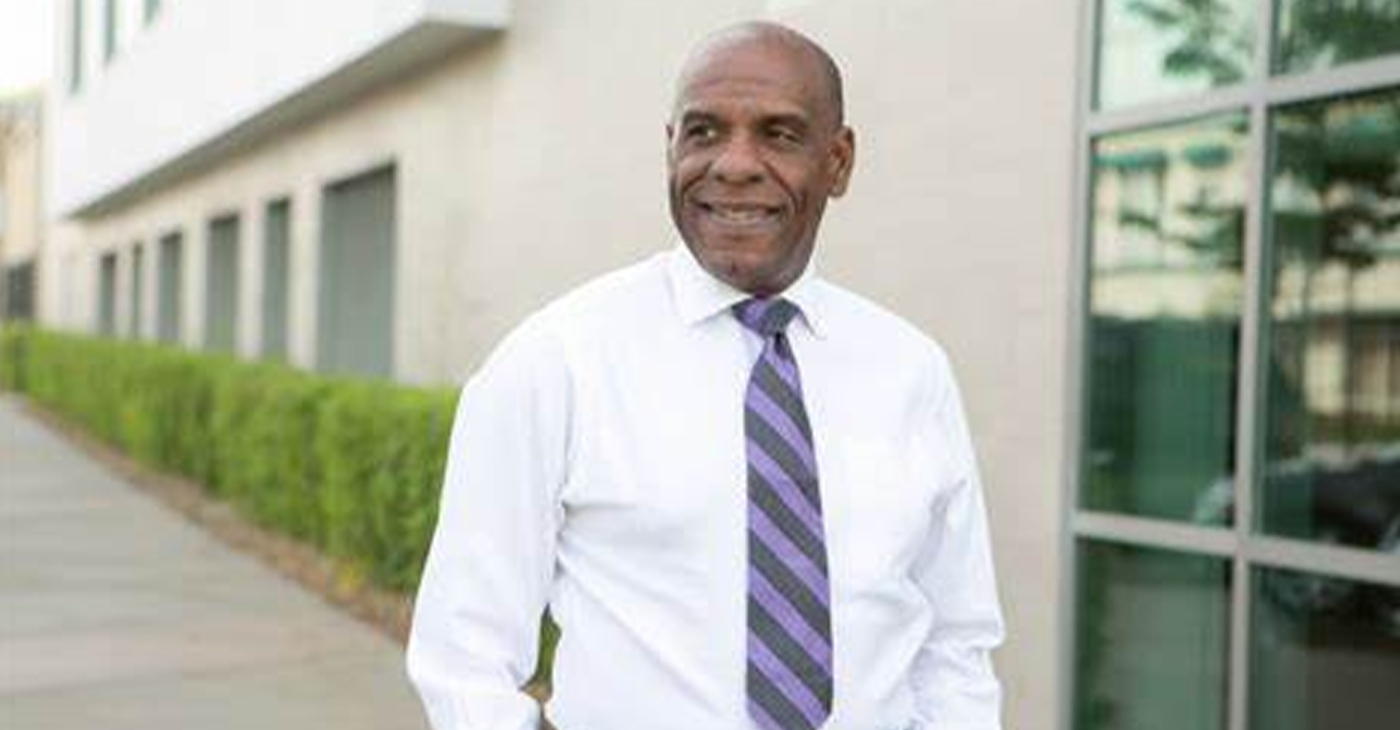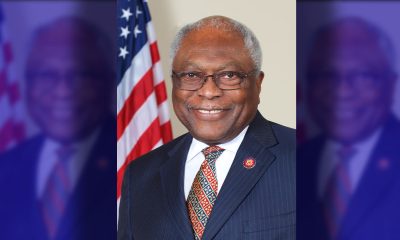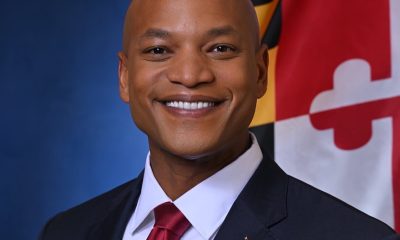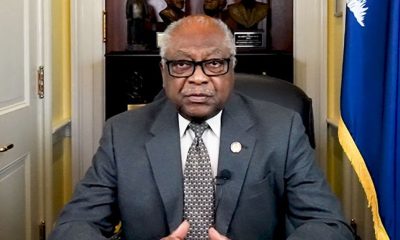Politics
Pentagon Chief: US Considering Slowing Exit from Afghanistan

Afghan President Ashraf Ghani addresses a new conference with U.S. Defense Secretary Ash Carter at the Presidential Palace in Kabul, Afghanistan, Saturday, Feb. 21, 2015. (SAP Photos/Jonathan Ernst, Pool)
Robert Burns, ASSOCIATED PRESS
KABUL, Afghanistan (AP) — The United States is considering slowing its military exit from Afghanistan by keeping a larger-than-planned troop presence this year and next because the new Afghan government is proving to be a more reliable partner, U.S. Defense Secretary Ash Carter said Saturday.
Carter, on his first overseas trip since starting the Pentagon job Tuesday, also said the Obama administration is “rethinking” the counterterrorism mission in Afghanistan, although he did not elaborate.
No decisions have been made, but President Barack Obama will discuss a range of options for slowing the U.S. military withdrawal when Afghan president Ashraf Ghani visits the White House next month, Carter said at a news conference with Ghani. The presidents also plan to talk about the future of the counterterrorism fight in Afghanistan, he said.
Carter did not say Obama was considering keeping U.S. troops in Afghanistan beyond 2016, only that the president was rethinking the pace of troop withdrawals for 2015 and 2016.
There are about 10,000 U.S. troops in Afghanistan, down from a peak of 100,000 as recently as 2010-11.
While the White House recently acknowledged it was reconsidering the exit plan, Carter’s remarks were the most direct explanation by a Pentagon official amid criticism from opposition Republicans that the Democratic commander in chief is beating a hasty and risky retreat.
On Feb. 11, the White House said Ghani had requested “some flexibility in the troop drawdown timeline” and that the administration was “actively considering” that. A day later, Gen. John Campbell, the top U.S. commander in Afghanistan, told the U.S. Senate Armed Services Committee that he had presented U.S. leaders with several options that would allow him to better continue training and advising Afghan forces, particularly through this summer’s peak fighting season.
The “common denominator” in the new thinking about the U.S. military mission is a belief in Washington that the formation of a unity government in Kabul last year has opened new possibilities for progress on both the political and security fronts, Carter said.
The unity government of Ashraf and Chief Executive Abdullah Abdullah offers new promise for a more effective partnership in stabilizing the country, Carter said.
U.S. officials had grown grew impatient with former President Hamid Karzai, who sometimes publicly criticized the U.S. military and took a dimmer view of partnering with the Americans.
“That’s a major change,” Carter said, something “that just a few months ago we couldn’t have planned on.”
Obama’s current plan calls for troop levels to drop by half from 10,000 by the end of this year and be at nearly zero by the end of 2016. The U.S. would maintain a security cooperation office in Kabul. Ghani has made it known he thinks that should be slowed down in order to better support Afghan forces battling a resilient Taliban insurgency.
In remarks to reporters later Saturday, Campbell said progress in stabilizing Afghanistan is evident in the security forces’ ability to plan and execute complex military operations. He said they are in the early stages of a major offensive in Helmand province, combining air and ground forces to retake lost ground. The top U.S. commander said he could not discuss details in order to preserve security for the operation, but said it currently involves fighting near the city of Sangin.
Carter did not specify what changes Obama is considering in the U.S. military presence. But he said could include slowing the withdrawal pace and changing the timing and sequencing of U.S. base closures.
He said Obama also was “rethinking the details” of the U.S. counterterrorism mission in Afghanistan, where there are remnants of al-Qaida as well as signs that the Islamic State militant group is seeking to make inroads here in addition to Iraq and Syria.
Campbell said he is monitoring IS recruiting efforts in Afghanistan, noting that the militant group showed in Iraq that it can, under the right circumstances, spread its influence quickly. But he was adamant that Afghanistan’s situation is not like Iraq’s and thus not as big a worry.
“We’ve got a government here that wants us to be here,” he said.
In his remarks to reporters, Ghani thanked Obama for being flexible and showing a willingness to consider “the realities on the ground.” Using similar phrasing, Carter said that when he returns to Washington he will work up recommendations to Obama, in advance of the March talks, that “reflect reality on the ground.”
Carter lauded the progress that Afghanistan has made during the 13 years since U.S. forces invaded and toppled the Taliban rule. Obama’s goal, he said, is to “make sure this progress sticks” so that Afghanistan does not again become a launching pad for terrorist attacks on the U.S.
Carter also met in the Afghan capital with Campbell and Gen. Lloyd Austin, the commander of U.S. Central Command, which has responsibility for U.S. operations in Afghanistan and across the Middle East.
Copyright 2015 The Associated Press. All rights reserved. This material may not be published, broadcast, rewritten or redistributed.
###
Activism
Oakland Post: Week of April 17 – 23, 2024
The printed Weekly Edition of the Oakland Post: Week of April 17 – 23, 2024

To enlarge your view of this issue, use the slider, magnifying glass icon or full page icon in the lower right corner of the browser window. ![]()
Barbara Lee
Congresswoman Barbara Lee Issues Statement on Deaths of Humanitarian Aid Volunteers in Gaza
On April 2, a day after an Israeli airstrike erroneously killed seven employees of World Central Kitchen (WCK), a humanitarian organization delivering aid in the Gaza Strip, a statement was release by Rep. Barbara Lee (D-CA-12). “This is a devastating and avoidable tragedy. My prayers go to the families and loved ones of the selfless members of the World Central Kitchen team whose lives were lost,” said Lee.

By California Black Media
On April 2, a day after an Israeli airstrike erroneously killed seven employees of World Central Kitchen (WCK), a humanitarian organization delivering aid in the Gaza Strip, a statement was release by Rep. Barbara Lee (D-CA-12).
“This is a devastating and avoidable tragedy. My prayers go to the families and loved ones of the selfless members of the World Central Kitchen team whose lives were lost,” said Lee.
The same day, it was confirmed by the organization that the humanitarian aid volunteers were killed in a strike carried out by Israel Defense Forces (IDF). Prior to the incident, members of the team had been travelling in two armored vehicles marked with the WCF logo and they had been coordinating their movements with the IDF. The group had successfully delivered 10 tons of humanitarian food in a deconflicted zone when its convoy was struck.
“This is not only an attack against WCK. This is an attack on humanitarian organizations showing up in the direst situations where food is being used as a weapon of war. This is unforgivable,” said Erin Gore, chief executive officer of World Central Kitchen.
The seven victims included a U.S. citizen as well as others from Australia, Poland, the United Kingdom, Canada, and Palestine.
Lee has been a vocal advocate for a ceasefire in Gaza and has supported actions by President Joe Biden to airdrop humanitarian aid in the area.
“Far too many civilians have lost their lives as a result of Benjamin Netanyahu’s reprehensible military offensive. The U.S. must join with our allies and demand an immediate, permanent ceasefire – it’s long overdue,” Lee said.
Community
Financial Assistance Bill for Descendants of Enslaved Persons to Help Them Purchase, Own, or Maintain a Home
California Legislative Black Caucus (CLBC) vice chair Sen. Steven Bradford (D-Inglewood) introduced new legislation related to reparations to the Senate Committee on Housing on April 2 in Sacramento. Senate Bill (SB) 1007, “establishes the Homeowner’s Assistance for Descendants of Enslaved Persons Program to make financial aid or assistance available to descendants for the purposes of purchasing, owning, or maintaining a home,” the legislation states.

California Legislative Black Caucus (CLBC) vice chair Sen. Steven Bradford (D-Inglewood) introduced new legislation related to reparations to the Senate Committee on Housing on April 2 in Sacramento.
Senate Bill (SB) 1007, “establishes the Homeowner’s Assistance for Descendants of Enslaved Persons Program to make financial aid or assistance available to descendants for the purposes of purchasing, owning, or maintaining a home,” the legislation states.
The Senate Housing Committee advanced the bill with an 8-1 vote. It will be re-referred to the Appropriations Committee for consideration.
Sen. Kelly Seyarto (R-Murrieta) was the only member who voted against the bill.
“SB 1007 is about starting a long process of paying back a debt that is not only owed, but that was also promised, and is 160 years overdue, to African Americans,” Bradford told the committee chaired by Sen. Nancy Skinner (D-Berkeley). “It is the first step in closing the wealth and equity gap created by centuries of slavery and racial discrimination policies.”
The bill aligns with one of the 115 recommendations listed in a two-year study conducted by the California reparations task force, of which Bradford was one of nine members.
Bradford said the report reveals that, in the state of California, a typical Black-owned home is 22% less valuable than a White-owned home.
Various advocacy groups from around the state attended the hearing held at the State Capitol Annex Swing Space. The California Housing Partnership, Bay Area Regional Health and Inequities Initiative, Coalition for A Just and Equitable California, Disability Rights of California, the American Civil Liberties Union of California, and California Community Builders all voiced their support of the bill.
-

 Activism4 weeks ago
Activism4 weeks agoOakland Post: Week of March 20 – 26, 2024
-

 #NNPA BlackPress3 weeks ago
#NNPA BlackPress3 weeks agoCOMMENTARY: D.C. Crime Bill Fails to Address Root Causes of Violence and Incarceration
-

 #NNPA BlackPress4 weeks ago
#NNPA BlackPress4 weeks agoFrom Raids to Revelations: The Dark Turn in Sean ‘Diddy’ Combs’ Saga
-

 #NNPA BlackPress3 weeks ago
#NNPA BlackPress3 weeks agoMayor, City Council President React to May 31 Closing of Birmingham-Southern College
-

 #NNPA BlackPress4 weeks ago
#NNPA BlackPress4 weeks agoCOMMENTARY: Lady Day and The Lights!
-

 Activism3 weeks ago
Activism3 weeks agoOakland Post: Week of March 27 – April 2, 2024
-

 #NNPA BlackPress4 weeks ago
#NNPA BlackPress4 weeks agoBaltimore Key Bridge Catastrophe: A City’s Heartbreak and a Nation’s Alarm
-

 #NNPA BlackPress4 weeks ago
#NNPA BlackPress4 weeks agoBaltimore’s Key Bridge Struck by Ship, Collapses into Water




















































